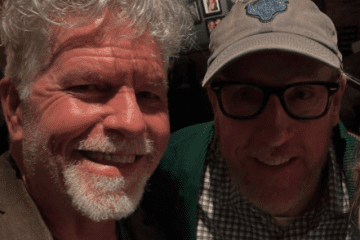Episode 364. Constructing The Narrative
“ Sometimes the hardest work goes completely unnoticed — which is as it should be. Reed Martin and Austin Tichenor discuss the narrative conceit they created for The Complete History of Comedy (abridged), other company’s failed attempts to create something similar, the problems of being too close to the subject matter, clumsy metaphors, and the difficulty (which Hamlet knew well) of creating the show you want it to be when you only know what you want it not to be. (Length 17:36)
Sometimes the hardest work goes completely unnoticed — which is as it should be. Reed Martin and Austin Tichenor discuss the narrative conceit they created for The Complete History of Comedy (abridged), other company’s failed attempts to create something similar, the problems of being too close to the subject matter, clumsy metaphors, and the difficulty (which Hamlet knew well) of creating the show you want it to be when you only know what you want it not to be. (Length 17:36)
Podcast: Download (Duration: 17:36 — 16.3MB)



0 Comments